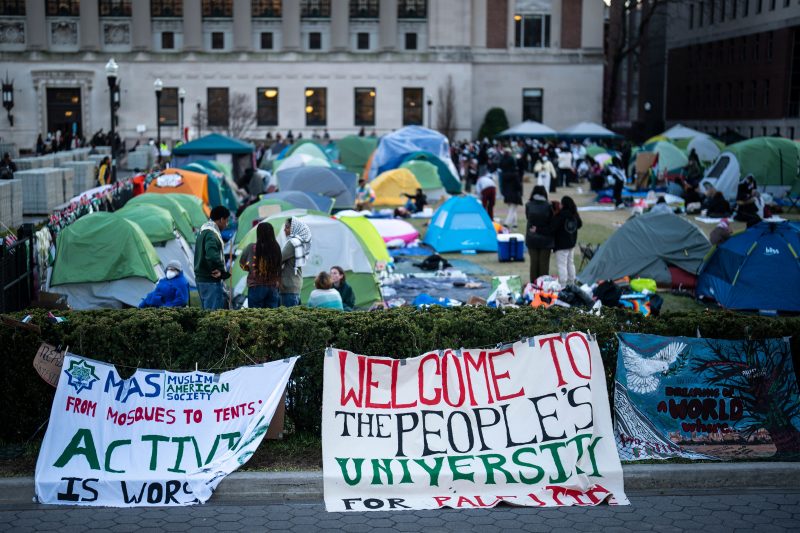The Link Between Campus Protests and Political Narratives
The strategic exploitation of campus protests by political entities is not a new phenomenon, but its effectiveness and repercussions have evolved in recent years. In the current political landscape in the United States, the image of campus protests has become a powerful tool for shaping public opinion and advancing certain political agendas. This phenomenon has been particularly evident in the actions of the Trump-led GOP, who have seized on campus protests to depict chaos under the Biden administration and undermine democratic governance.
The Strategy Behind the Narrative
The portrayal of campus protests as symbols of anarchy and disorder serves the political agenda of certain groups seeking to undermine progressive policies and instill fear among the public. By amplifying instances of unrest on college campuses, political entities can create a narrative of chaos and instability, which they attribute to the policies and leadership of their opponents. This narrative aims to erode trust in institutions and sow division among the public, thereby weakening the perceived effectiveness of the ruling administration.
The Role of Social Media and Media Outlets
The proliferation of social media platforms and partisan media outlets has facilitated the rapid spread of narratives linking campus protests to broader political agendas. These platforms serve as echo chambers where selective information and sensationalized stories can be broadcast to target audiences, amplifying existing biases and fostering distrust in opposing viewpoints. In this environment, campus protests are not only reported on but also interpreted through a political lens, further reinforcing the narrative of chaos and instability.
The Impact on Democracy and Civil Discourse
The weaponization of campus protests for political gain poses a significant threat to democratic governance and civil discourse. By framing dissent and protest as signs of disorder, political entities risk stifling legitimate expressions of dissent and undermining the fundamental right to protest. Furthermore, the manipulation of public perception through selective reporting and fearmongering can erode public trust in democratic institutions and processes, paving the way for authoritarian tendencies to take hold.
Moving Forward: Nurturing an Informed Citizenry
To counter the exploitation of campus protests for political gain, it is imperative to promote critical thinking and media literacy among the public. By encouraging a discerning approach to information consumption and fostering a culture of constructive dialogue, we can inoculate ourselves against the divisive narratives that seek to polarize society and undermine democratic values. It is essential for citizens to engage with diverse perspectives, question their sources of information, and actively seek out nuanced and balanced reporting to counter the influence of politically motivated narratives.
In conclusion, the strategic use of campus protests to shape political narratives represents a troubling trend that threatens to undermine democratic governance and civil discourse. By understanding the motivations behind this phenomenon and actively engaging in critical thinking, we can work towards fostering a more informed and resilient citizenry capable of discerning truth from manipulation. To safeguard democracy and protect the right to dissent, it is crucial for individuals to remain vigilant against the exploitation of protest movements for partisan gain.
